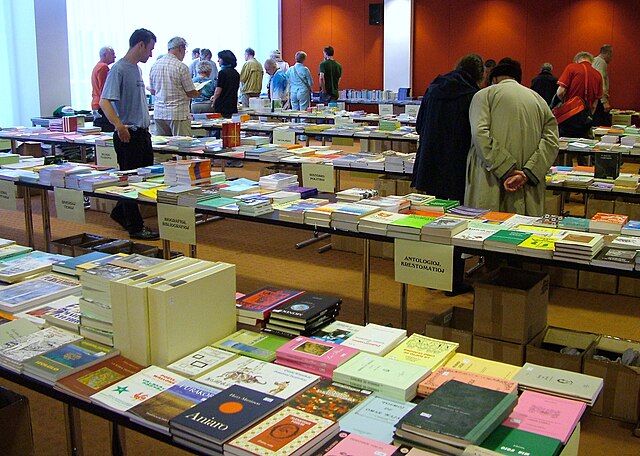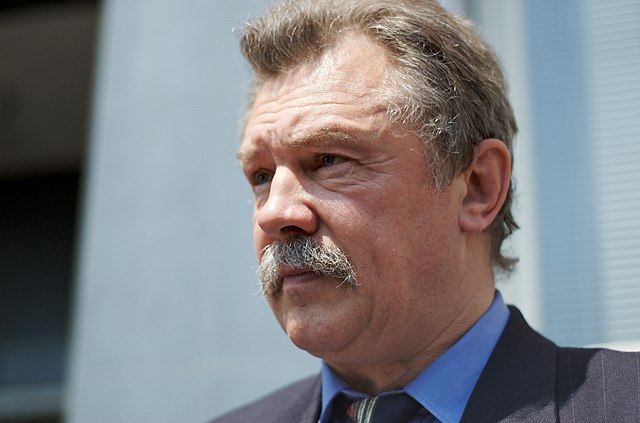The World Esperanto Congress is an annual Esperanto convention. It has the longest tradition among international Esperanto conventions, with an almost unbroken run for 119 years. The congresses have been held since August 5, 1905, every year, except during World War I, World War II, and the COVID-19 pandemic. Since the 1920s, the Universal Esperanto Association has been organizing these congresses.
Mark Fettes, president of the World Esperanto Association, during the 100th World Esperanto Congress in Lille (France), 2015
World Esperanto Congress 1908
Esperanto is the world's most widely spoken constructed international auxiliary language. Created by L. L. Zamenhof in 1887, it is intended to be a universal second language for international communication, or "the international language". Zamenhof first described the language in Dr. Esperanto's International Language, which he published under the pseudonym Doktoro Esperanto. Early adopters of the language liked the name Esperanto and soon used it to describe his language. The word esperanto translates into English as "one who hopes".
7th Esperanto congress, Antwerp, August 1911
The Republic of Rose Island used Esperanto as its official language in 1968
Esperanto books at the World Esperanto Congress, Rotterdam 2008
Hungarian Cosmonaut Bertalan Farkas, the first Esperantist in space






